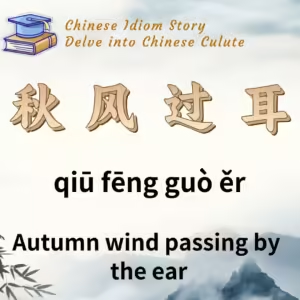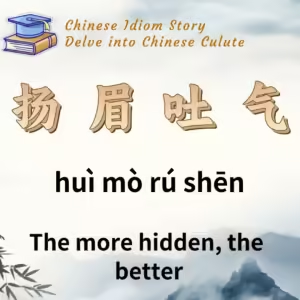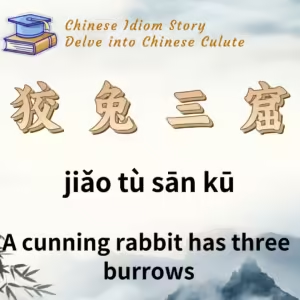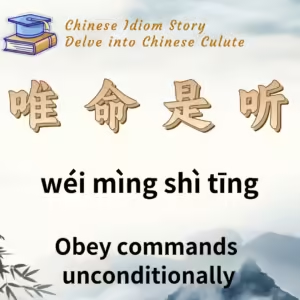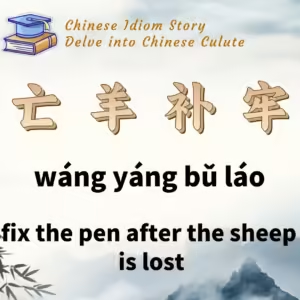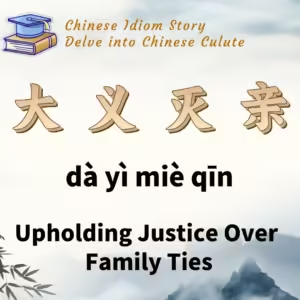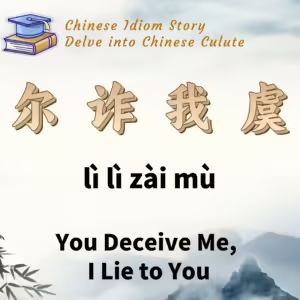
Chinese Idiom: 尔诈我虞 (Er Yu Wo Zha)
English Translation: You Deceive Me, I Lie to You
pīn yīn: lì lì zài mù
Idiom Meaning: This idiom describes a situation where mutual distrust leads to deceitful behavior on both sides. It reflects a scenario where both parties engage in deception and mistrust each other.
Historical Source: 《左传·宣公十五年》 (The Zuo Commentary: Annals of Duke Xuan, Year 15).
Idiom Story:
In 594 BC, during the Spring and Autumn period, King Zhuang of Chu besieged the capital of the Song state, Juyang (now in Shandong). The ruler of Song, Duke Wen, attempted to defend his city by having General Hua Yuan and the local citizens fortify their defenses. At the same time, he sent envoys to the Jin state to request military aid.
The Jin ruler, Duke Jing, did not send troops but sent an envoy, Jie Yang, to deliver a verbal message of support. On his way, Jie Yang was captured by the Chu army. King Zhuang of Chu, seeing an opportunity, wanted to use Jie Yang to demoralize the Song defenders by pretending that the Jin state could not send aid immediately and offering Jie Yang a position if he cooperated.
Initially, Jie Yang was silent, but later agreed to deliver the false message. However, when Jie Yang arrived at the Song camp, he gave a completely different message: “I was captured and could not reach you. The Jin ruler sends his regards and promises to come to your aid. Do not surrender!”
Furious at Jie Yang’s deceit, King Zhuang considered punishing him. Jie Yang, however, defended himself by stating that he had conveyed the true message from Jin and asked King Zhuang if he would value a traitor who deceived the enemy. King Zhuang was impressed by Jie Yang’s loyalty and spared him.
Inside the city, Hua Yuan, after waiting in vain for months, decided to negotiate directly with the Chu leader, Zi Fan. Hua Yuan secretly entered the Chu camp and, after confronting Zi Fan, learned that the Chu forces were also running low on supplies. Zi Fan agreed to retreat and negotiate a treaty.
The resulting treaty included the clause “我无尔诈,尔无我虞” (We do not deceive you, and you do not deceive us). This phrase means both sides agreed to mutual honesty and trust.
The story led to the idiom “尔诈我虞” or “尔虞我诈,” illustrating how mutual deception and mistrust can become a self-perpetuating cycle.

